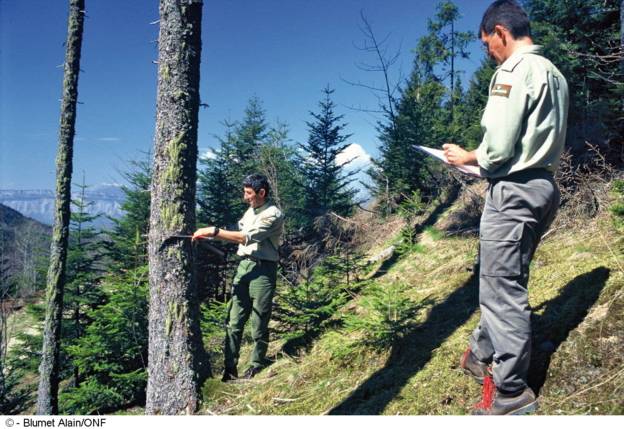


How Work Became a Revolutionary Concept
13 June 2022
Refusing Down’s Syndrome Screening: A Reasoned Choice
27 November 2022Not a week goes by without the publication of a new book by a professional, a journalist, an observer witness, or a researcher, about the contemporary transformations of work: automation and digitalisation of tasks, activities or functions, the constitution of new economies and their new ‘workers’, and the massive adoption of telework. Other developments have compounded these: changes in existing organisational forms and institutional innovations, and consideration of climate change effects on the strategies and business models of public and private organisations.
All these processes are disrupting work, its remuneration, the professional relationships that form when it is performed, and the risks and dangers to which workers are exposed.
The research conducted at Sciences Po approaches these major themes from three angles: the contributions that workers make to social life (I), their remuneration (II), and how their professional activities affect them (III). By exploring the tensions that run through the contemporary world of work, all of this research reveals the social and political meanings of these reconfigurations. In this issue, we present a selection of recent works that capture these stakes.
I — Contributions
It is a truism among historians that work has not always been a central value in Western societies. What is less known, as Samuel Hayat shows, is that the working class has not always been a ‘unified class’, but rather was for a long time an entity divided into many trades, which could thus not assert themselves as the subject of a socialist ideology. For this transformation to take place, it was necessary, among other things, for a new conception of work to emerge, as a ‘contributing’ activity with value, be it economic, of course, or political and moral. Read the article How Work Became a Revolutionary Concept
This contribution, and the skills associated with it, are being transformed by global warming and environmental threats in the forest ranger profession, as Charlotte Glinel shows by analysing tree marking. In fact, this act, which is core to the profession, reveals a key aspect: fundamental decision-making in forest management. Through close field observation of the gesture, Charlotte Glinel grasps the transformations of the profession caused by contemporary climatic uncertainties, and underscores the tension between rationalised and technocratic management, and the wise and experienced discretionary management of public foresters. Read the article: Forestry Work: a Key to Fighting Global Warming?
II — Remuneration and compensation
Does every contribution deserve a reward? If the answer is yes, should people who do not contribute to social life through their work receive from society the means to support the path they have chosen? This is an old question that Guillaume Allègre revisits in the context of the debates generated by the President’s plan to make active solidarity income conditional on a contribution requirement. In doing so, he explores the controversies that arose in several countries around the possibility of creating a universal income without any condition. The analysis leads him to analyse the foundations, validity, and scope of the arguments in favour of this option: common ownership of external resources, dignity, or need. Read the article Welfare and Reciprocity: Should We (Really) Feed the Surfers?
In fact, it is this question of the links between contribution and remuneration that is studied here, as shown by Didier Demazière’s examination of compensation for holding office for French elected officials. While elected officials have professionalised in recent decades and the expression of “political work” is frequently used, the question of remuneration appears to be under-investigated: how is compensation calculated, what are the rules, what are the amounts and, finally, are elected officials “compensated” for working? By sharing the results of unpublished surveys, Didier Demazière shows how engagement transforms the idea of remuneration into that of compensation, which is often minimal. Read the article Are Elected Officials Compensated for Working?
Marta-Dominguez Folgueras studies and compares the impact of different types of parental leave in different countries. She and her colleagues show that the duration of the leave plays a key role in deepening gender inequalities in the world of work: the pay received during the leave makes it more difficult to obtain promotions and/or pay rises. There is also a risk of stigmatisation, as people taking leave may be seen as “less committed” to their work. With numbers to back it up, this research opens up a new, scientifically based front in the fight against gender discrimination. Read the article: Wage Inequality: the Price of Motherhood
The last part of this analysis focuses on remuneration associated with degrees. Pauline Corblet starts from the observation that graduates who entered the job market in the 2010s experienced lower salary increases than those who were first employed in the 1990s. How to explain this phenomenon? She finds that the main cause of this decline lies in the increasing number of graduates entering the labour market, and explores two specific mechanisms: access to management positions and the pairing between degree specialities and the occupations and socio-occupational categories associated with the jobs. Read the article Higher Education Graduates’s Decreasing Returns to Experience
III — Afflictions and risks
Tasks, roles, and work also expose people to risks and dangers. Marion Fontaine shows how, over the decades, certain workplace accidents – in this case in the mines – have changed their ontological status, from fatality to risk. This is a radical change, since we can not only compensate for the consequences, but also prevent them: accidents now have causes, victims, and identified perpetrators who can be prosecuted. Her work seeks to identify the factors that have enabled this transformation. Read the article: Dying at Work? Industrial Society and the Relationship to Risk
Beyond the political and moral reflections on the complex links between degrees, activity, and work, and the compensation and remuneration they provide, all this research yields useful findings for public policymaking, especially with regard to the reduction of social inequalities and risk prevention, including environmental ones.
Henri Bergeron and Gwenaële Rot, Centre for the Sociology of Organisations
Henri Bergeron is Director of Research at the Centre for the Sociology of Organisations. His work focuses on health policies and transformations in medical practices and the medical profession by studying various subjects: illicit drugs, alcohol, obesity, medical research, and public health. Director of the Executive Master’s degree in “Public Policy Management”, he will be leading the new master’s degree in “Organisations and Human Resources Management” at the beginning of the next academic year. Gwenaële Rot is a university professor at Sciences Po and a researcher at the Centre for the Sociology of Organisations. She focuses on the sociology of work, businesses, and organisations through the concrete forms of production as well as the modalities and effects on work of the rationalisation of economic activity. Her research also covers visual sociology and the history of the sociology of work, particularly the history of the major collective surveys of post-war industrial sociology. She is currently working on the ENDLESS project, which explores contemporary global changes in work and employment by drawing on a region: Tangier, Morocco.




